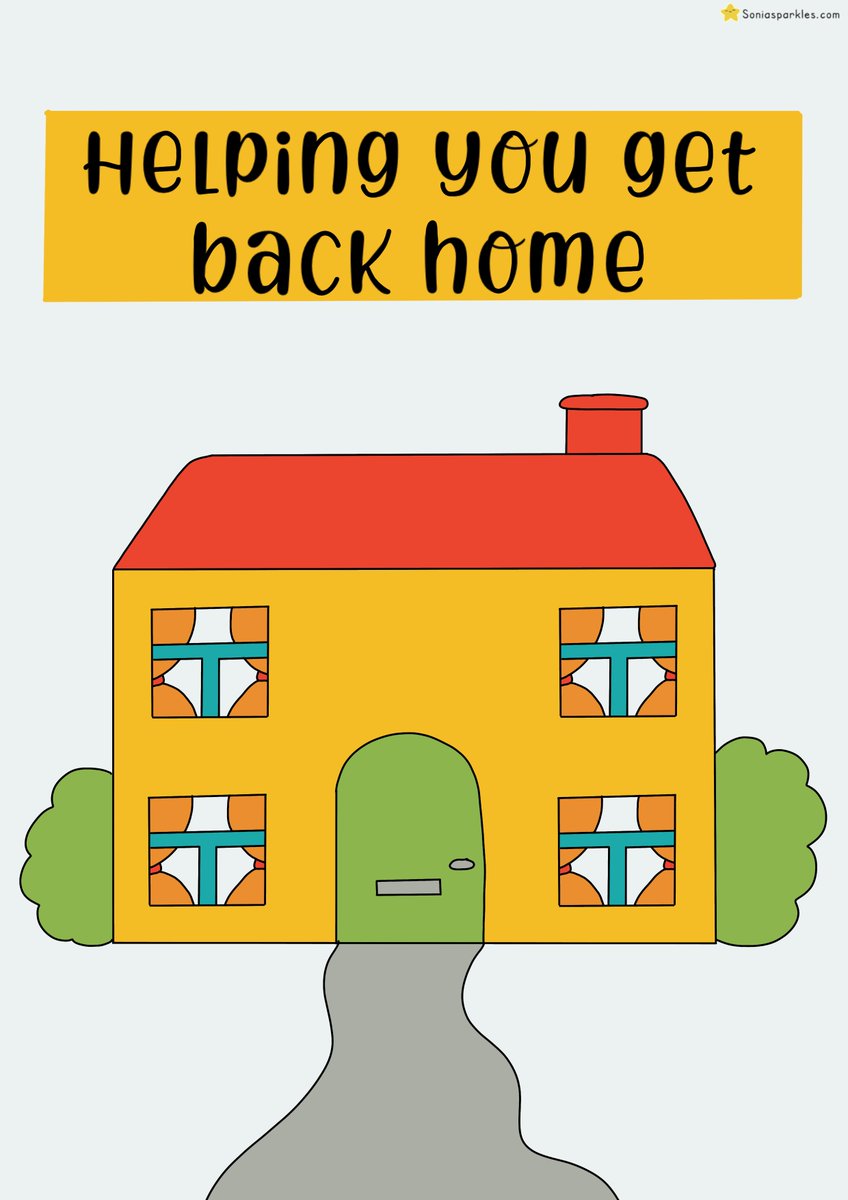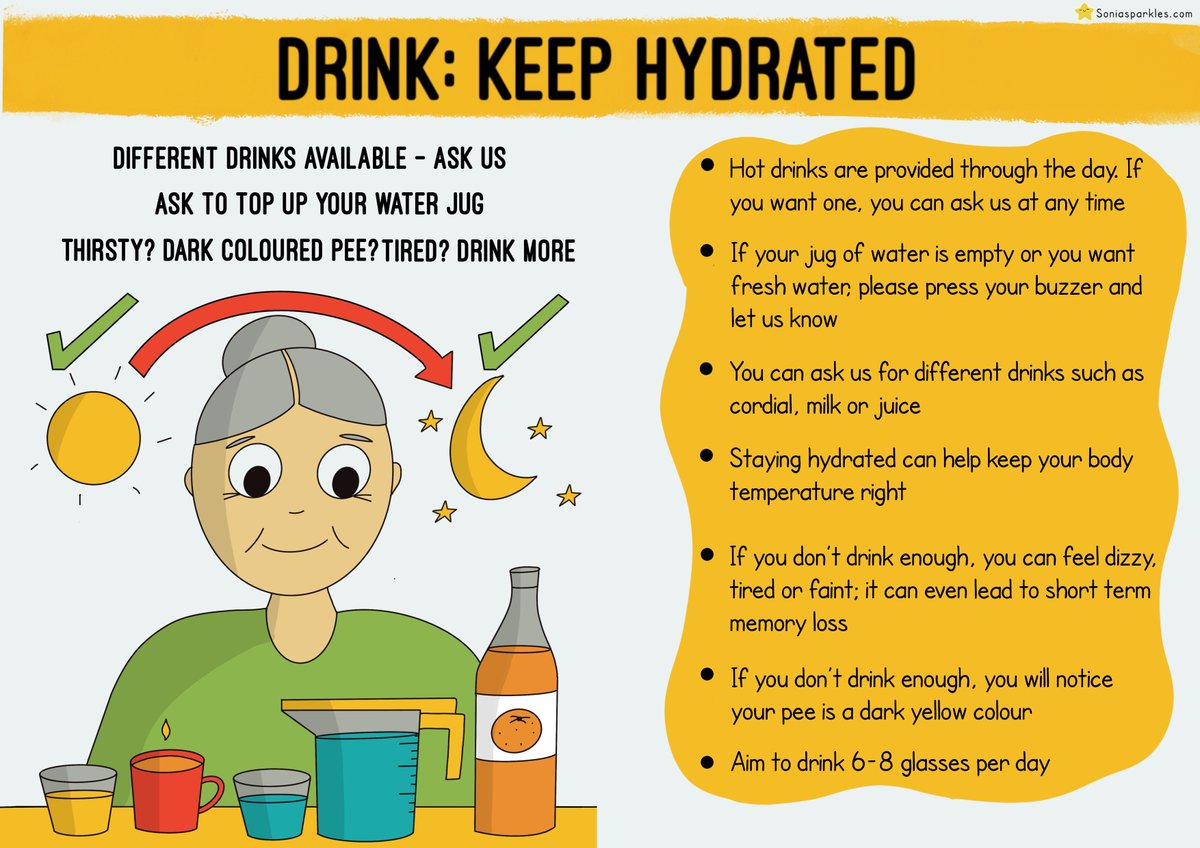
After analysing 60+ leaflets, working in healthcare 15 yrs and being a patient advocate for many years, here's the thread with 23 poster visuals all hospitals can do to empower patients to lead on their care. Fully educating, empowering and encouraging patients can save lives 👇 

1/23 Let’s start with falls. Do all patients know what to do to prevent a fall? Do they know an assessment is done? They don’t need an overly complicated leaflet, they just need to know what to do and what is done. Simple = more people will understand it #FallsAwarenessWeek 



2/23 Let’s move to hand hygiene. We have reports, targets, audits and working groups for this; but again, do patients know what we are aiming for? Do they know when to challenges us and what hand hygiene means? After all it’s for them we do it... #infectioncontrol 



3/23 So we know about Red2Green and no delays; but what do patients know about this? Why should there only be challenges from the Flow Team or Senior Managers chasing delays? Patients should also hold us to account and spur us to make every day count #SAFER 



4/23 Estimated date of discharge. So important to have a date to go home in mind even though it might change. Do patients know what it is? Do they know we are meant to set it for everyone? We need to make it more real, the person who it’s done for also need to hold us to account 



5/23 Informed decision making. It can be scary as a patient to ask why certain decisions are made. Sometimes it can be easy as a professional to not always ACTIVELY include the patient due to time constraints or pressures. Knowledge is power and comfort all patients need 



6/23 Our names and job roles. We take it for granted that everyone knows what we do. Explain what you do properly so the patient knows what to expect and feels comfortable asking things. Names build connections, when you say your name, look them in the eye and connect 



7/23 Hydration. Do patients know why it is important? Do they know they can ask for different drinks? Do they know what to look out for? It’s not just the job of Nurses to ensure all patients are hydrated, empower patients to do this themselves too! Encourage them 



8/23 Meal times. Sometimes, patients can be hungry between meals & not aware they can ask for food or might feel uncomfortable asking. Let them know it’s ok. Give help if needed. I’ll never forget a lady beside me on a ward who couldn’t reach her grapes -I helped feed them to her 



9/23 Ward rounds. These can seem scary to patients with lots of professionals assessing them. They might not feel confident asking for things to be explained or even know what a care plan is. We need to make them feel in charge, inquisitive and comfortable with what’s going on 



10/23 Sleeping well. Good quality sleep can help patients get better - physically and mentally. Do they know they can challenge us if we are disturbing them at night e.g. loud talking, loud phone ringing, loud bin lid. We should empower them to feel comfortable telling us 



11/23 Medication. Explain it in simple terms so patients know exactly what it does. They need to be aware of side effects. They need to be aware of how it helps them. They also need to be aware if they are in pain, they don’t need to suffer silently. Encourage them to ask 



12/23 Clean mouth. Often, patients might not think brushing their teeth is significant- informing them why it is can encourage them to do it more often. They don’t need to be embarrassed if they don’t have a toothbrush or need help, they need to know they can ask us 



13/23 Handover. How many times do we get something wrong on it or miss something important? By involving the patient, less mistakes will happen, after all, it’s all about them! Bedside handover should be done more often. They help inform the patient as well as include their needs 



14/23 Visiting. Patients can feel really anxious, lonely or sad during hospital stays. It’s important they know what the rules are about visiting. It’s also important they know carers can come help them at anytime. This can be crucial to their well-being, recovery and advocacy 



15/23 Sitting out to eat. Such a simple one but many patients continue to lay down in bed to eat because they don’t know the benefits. Encouraging them to sit out does more than help their digestion, it gets them moving and active. Laying down all day isn’t good for them 



16/23 Knowing who to speak to. Patients who might feel unheard or scared to challenge need to know who else they can go to. It can literally save a life. They can talk to about their worries - this isn’t necessarily a complaint; it can be suggestions, feelings or experiences 



17/23 Your poo matters. Yes I used the word poo. Everyone knows what it means. Make patients feel less embarrassed & more confident in speaking about it. They need to know they are not bothering us by asking for help. Many falls happen when they don’t ask for help going to toilet 



18/23 Understanding your care plan. I cannot emphasise enough how much we need to explain things. This helps them to know what to look out for, when somethings not right and if they need to speak up. They are our alert system, we need to use it more by educating patients 



19/23 Pressure ulcers. We have quality improvement projects on this, but how many include empowering patients to look out for them? Patient’s know their own body; ask them/family to raise concerns re: pressure ulcers. How many serious incidents could this reduce? 



20/23 EndPJParalysis. Just some gentle encouragement to get dressed and get moving. Mental health, well-being and motivation to get better can help patients during a challenging time in their life. It can also help them transition from hospital to home 



21/23 Blood clots. Life threatening and increased risk during hospital stay. Educating patients on what to look out for and what to do to reduce the risk of getting one is so important 



22/23 SAFER patient flow. Something most hospitals are doing but how many are explaining to patients in simple terms that they can understand - what it is, what to expect and what to raise if it doesn’t happen? We do SAFER for our patients so we should include them 



23/23 finally the last one is readiness to go home. Some simple things we can get patients to think about that can help with their discharge and get them safely home 



If you like my posters and want to download the full pack you can order via - etsy.com/uk/listing/129…
• • •
Missing some Tweet in this thread? You can try to
force a refresh




